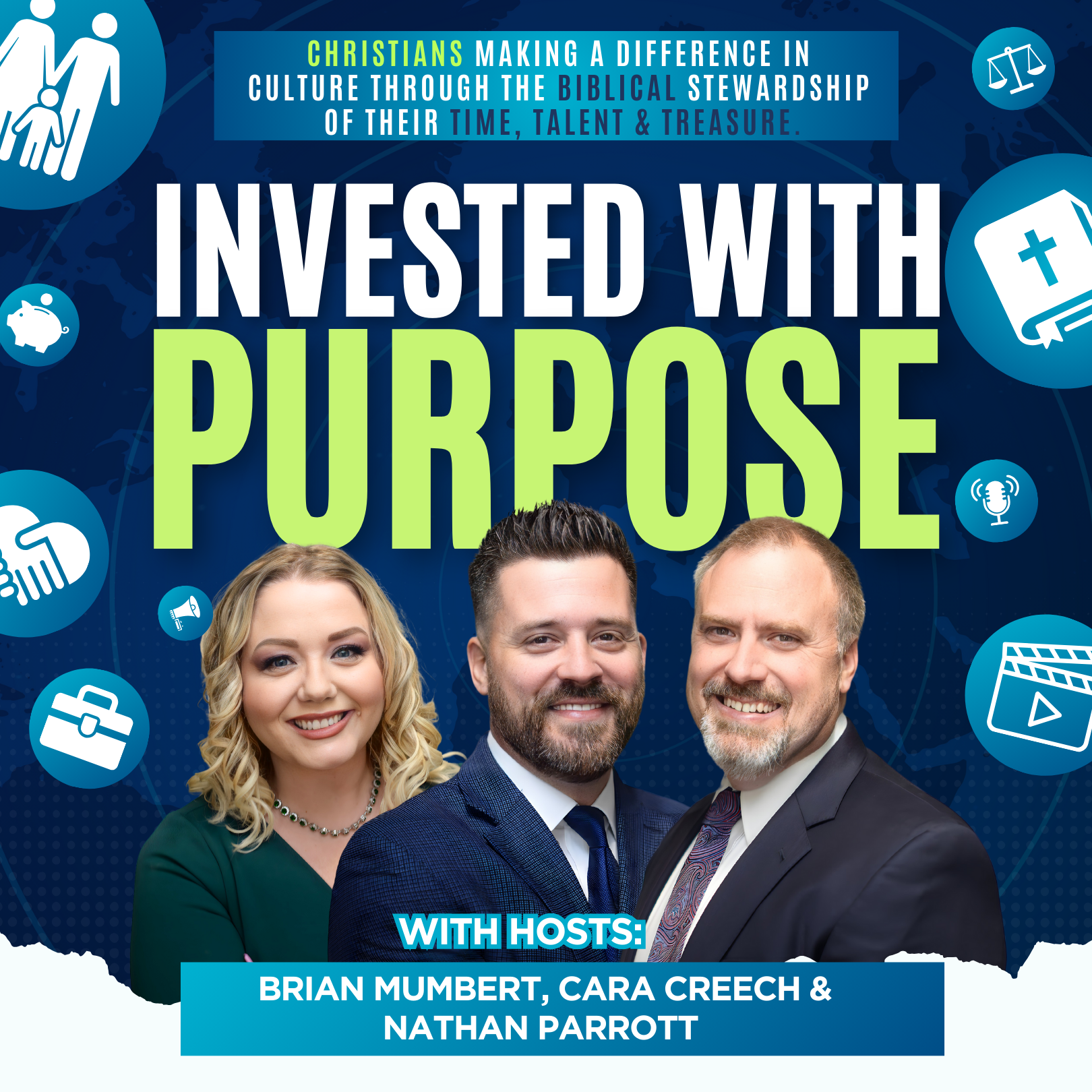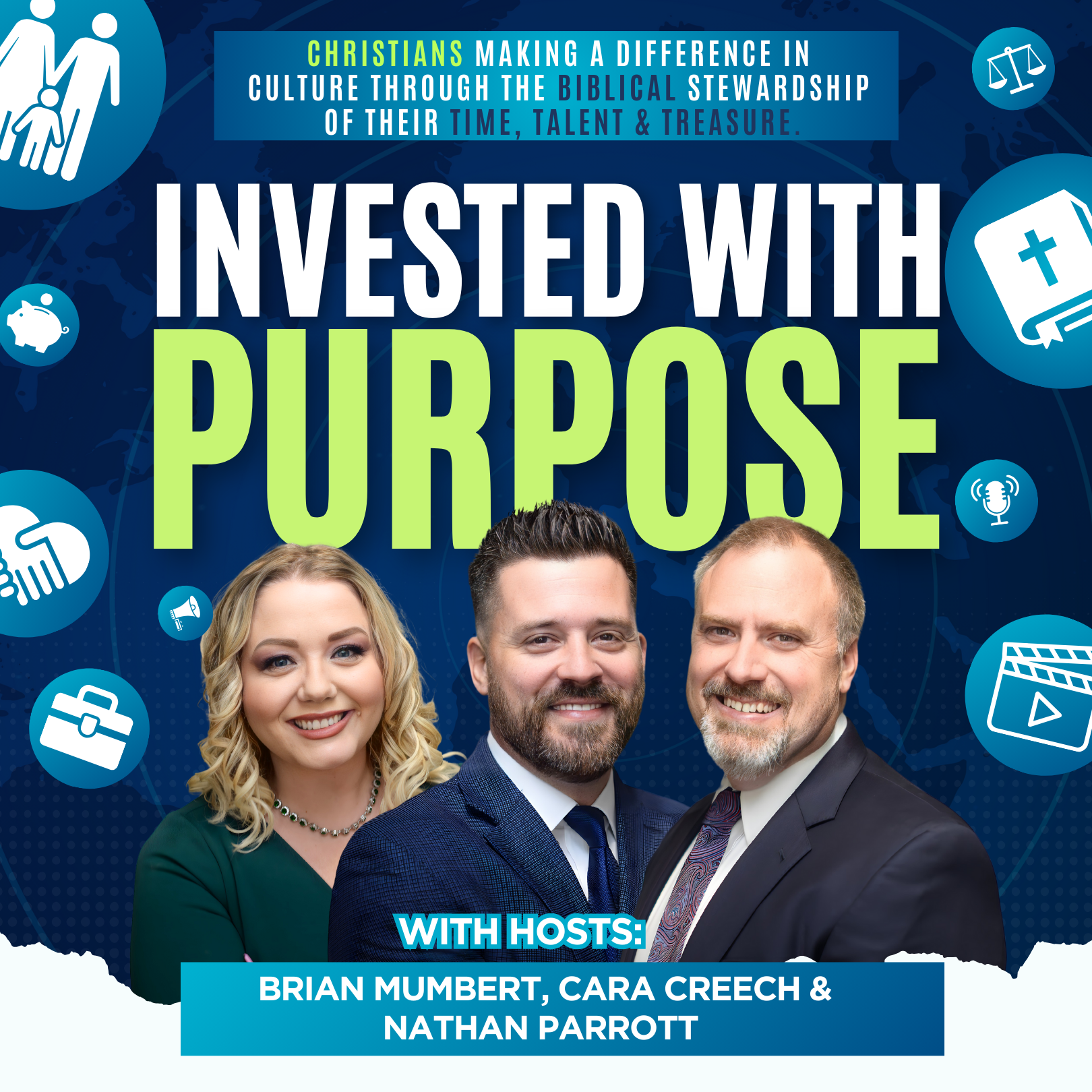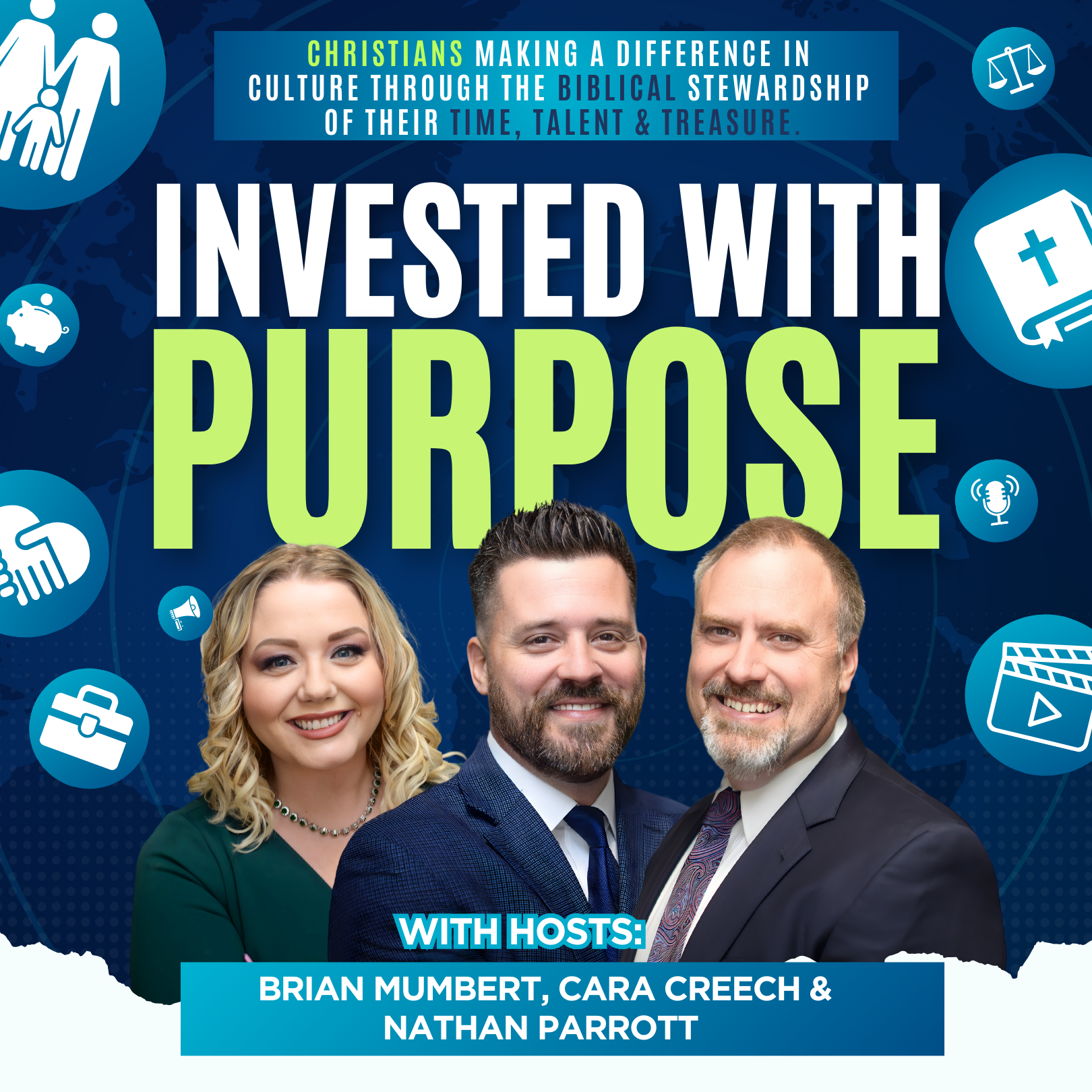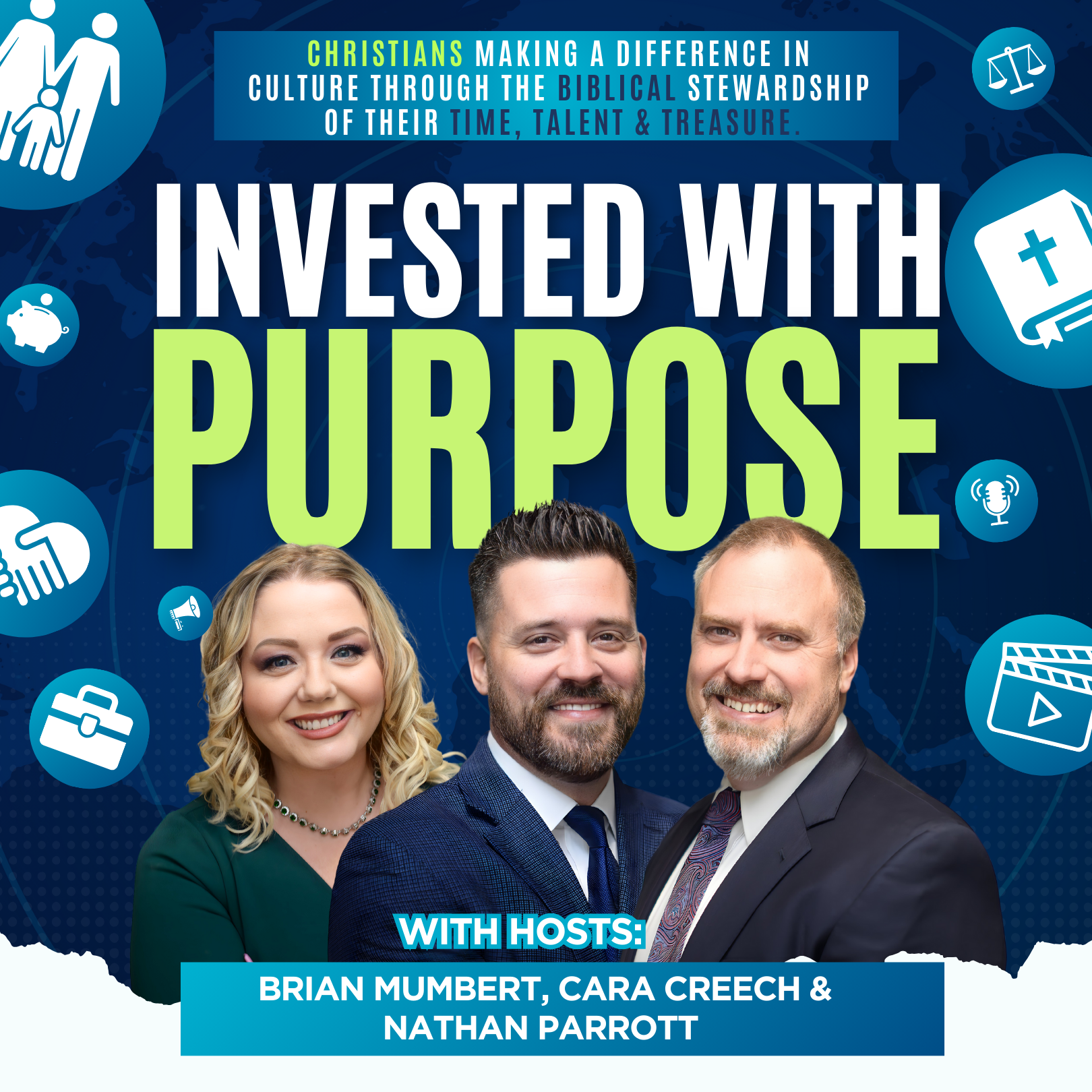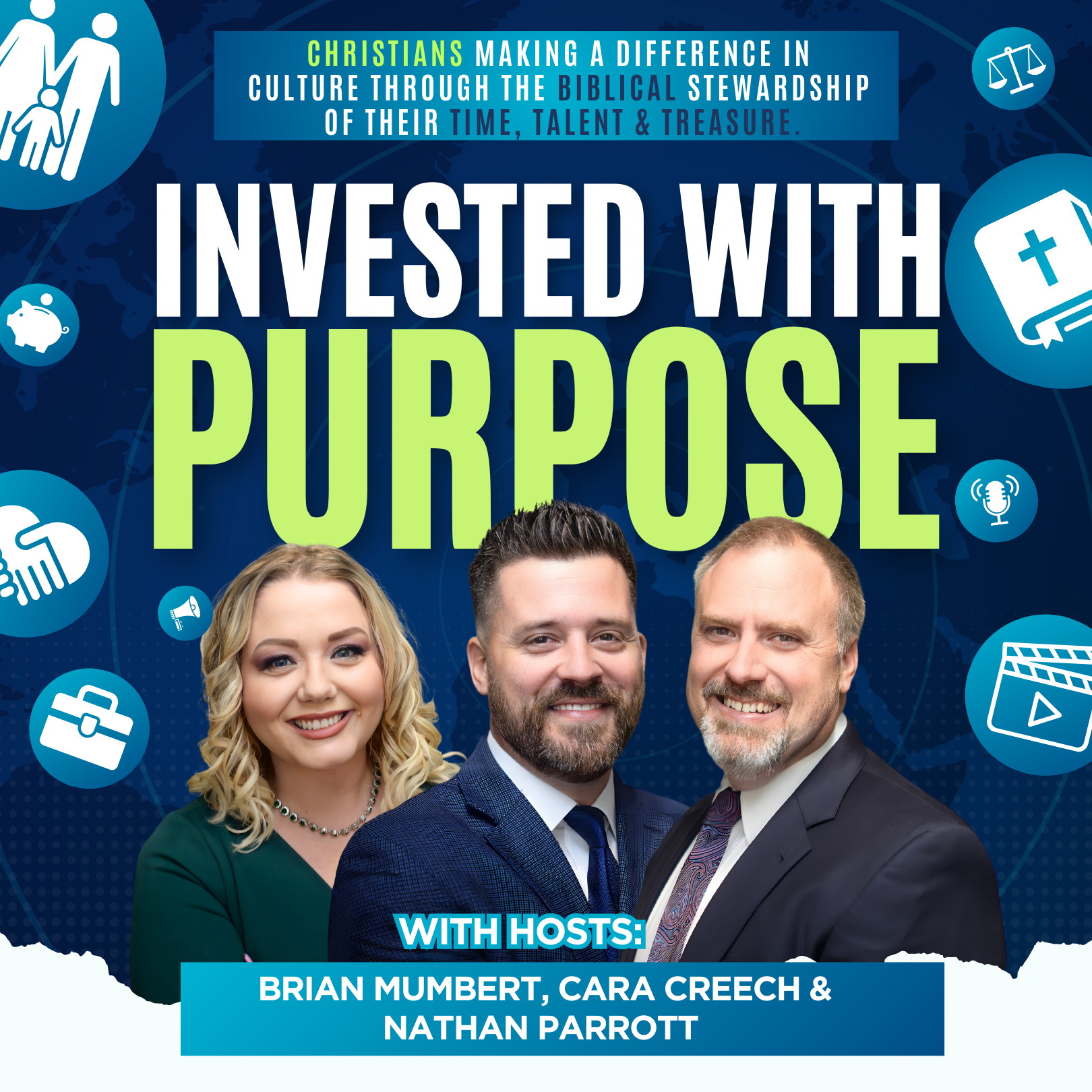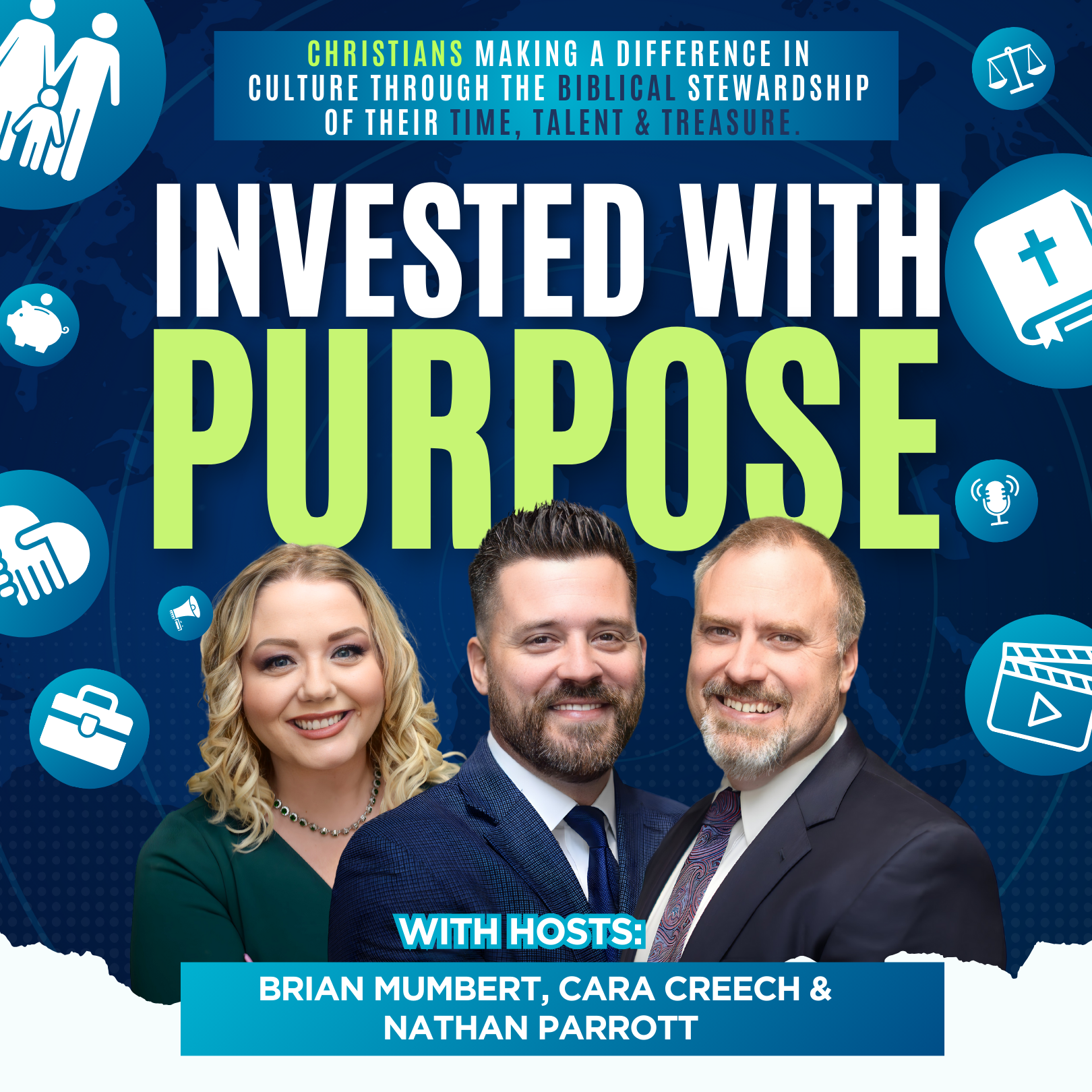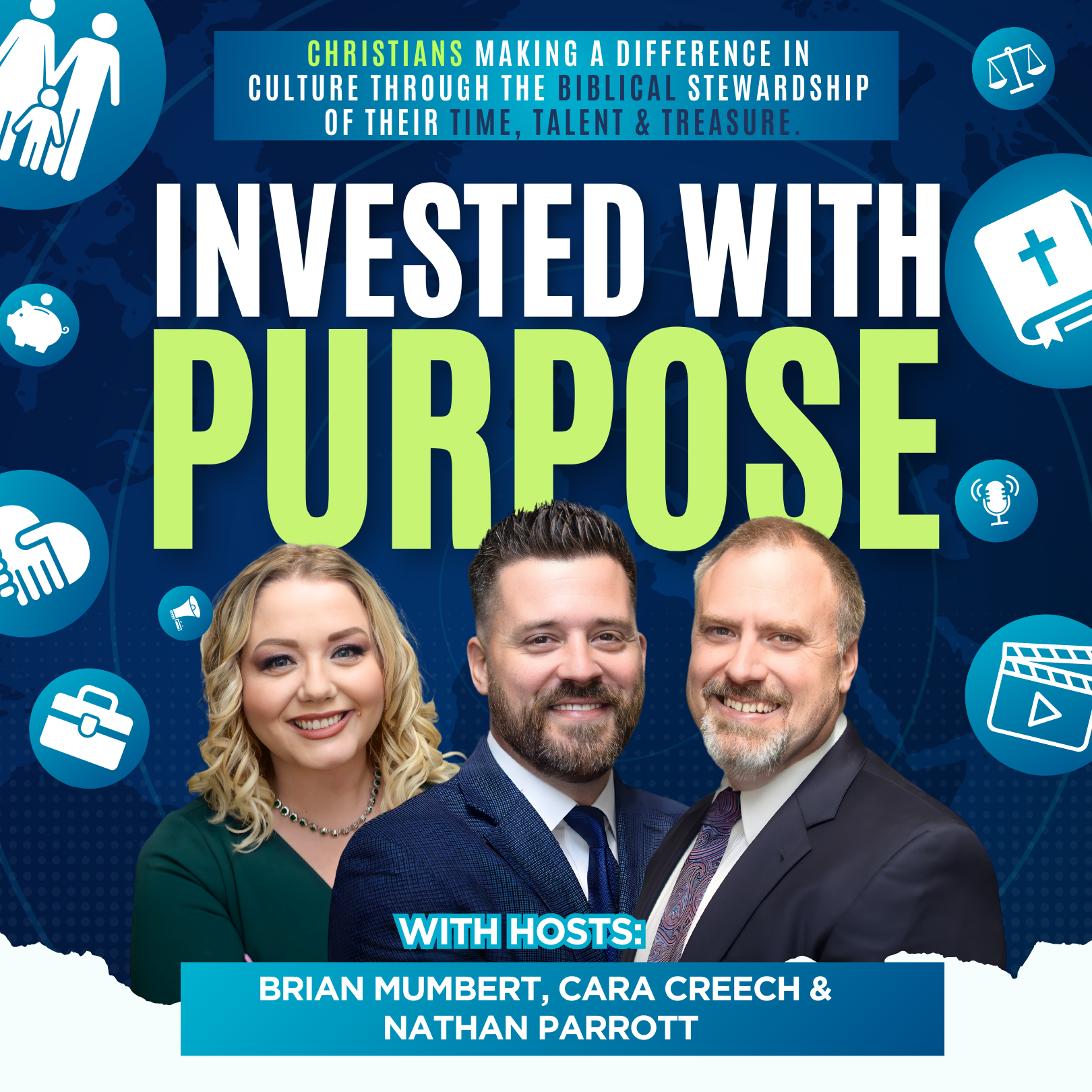The ESG Agenda vs God's Plan with Glenn Repple : Episode 4 hosted by Brian & Orlando
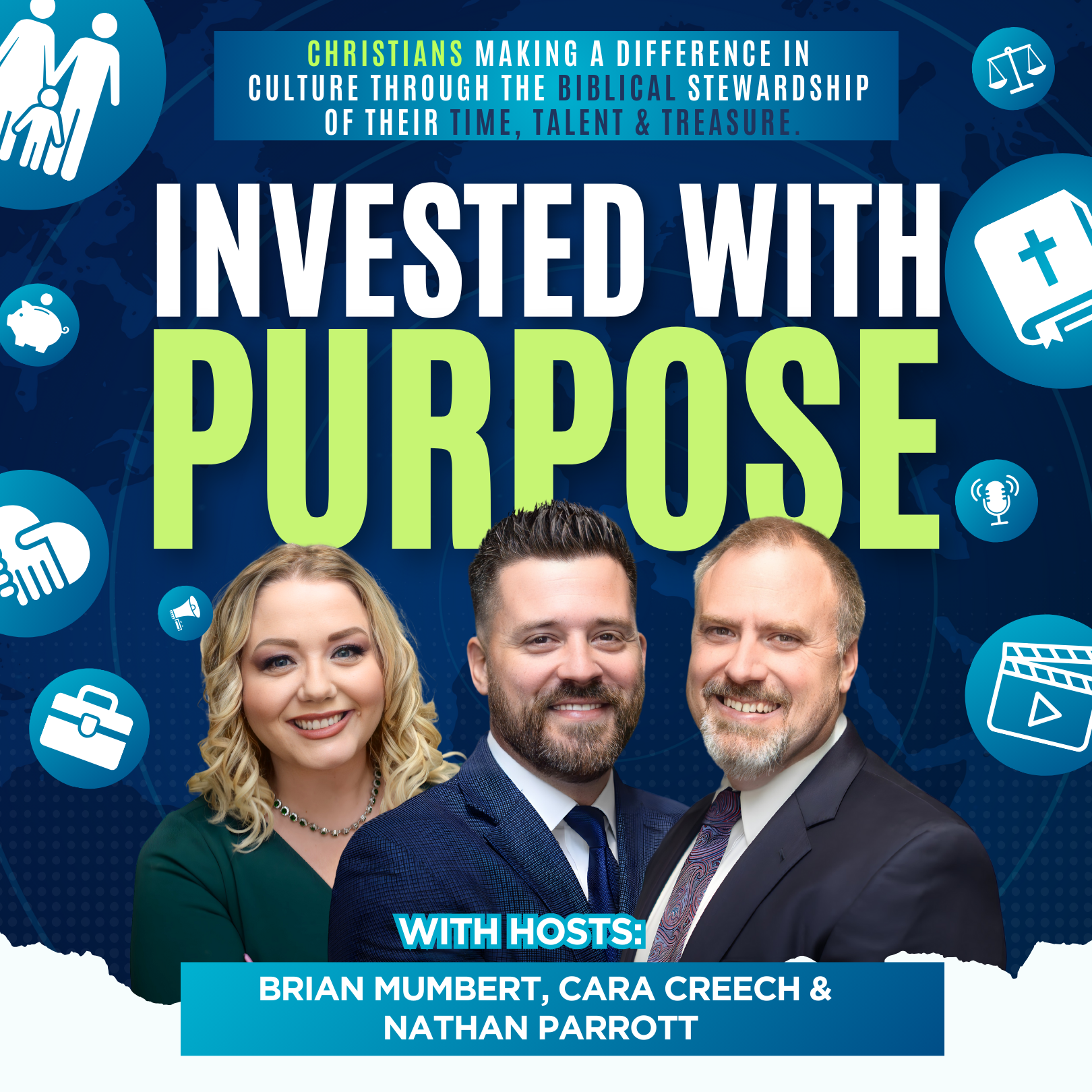

Glenn Repple is the Founder and President of G.A. Repple Financial Group which manages several businesses including G.A. Repple and Company, a national broker dealer and securities firm.
Glenn’s journey of preparation in the Financial Services industry started in 1972, and eventually led him to become a Regional Vice President with E.F. Hutton Financial Services. His responsibilities were to recruit and train Attorneys, CPA’s, Insurance Agents and Stock Brokers to work together providing financial planning services to clients and businesses owners. After 10 years of corporate training and experience and with an expanded passion for serving people, Glenn left E.F. Hutton in 1982 to become and independent Financial Planner to start G.A. Repple and Company.
Since its founding, G.A. Repple has expanded with offices throughout the United States and licensed in 49 States. G.A. Repple has assisted in the formation of over hundreds of foundations and has raised millions of dollars to fund Kingdom of God purposes through tax and estate planning strategies.
Biblical Entrepreneurship is a comprehensive, transformational, business discipleship course that provides a strong mix of core business concepts and biblical principles. Glenn has trained over 500 business leaders who have likewise, claim, spreading the teaching into over 24 nations helping to fulfill Glenn’s mission – “Helping people fulfill God’s plan for their lives through business.”
Glenn is also the past Board Chairman and Board Member of Nehemiah Project International Ministries. He is currently the Area Developer bringing the transformational Biblical Entrepreneurship training to Businesses, Business leaders, Churches, Boards and Ministries. Over 10,000 business leaders have been trained through Biblical Entrepreneurship. Most of the graduates of the program operate small to mid-size businesses.
Glenn Repple has continuously published “The Morning Minute” since 2006 to encourage, uplift and challenge us to step further into God’s plan by recognizing the opportunities that are available through application of God’s Word to our daily lives.
Listen NOW as Glenn explains his passion for Biblical Stewardship and expanding the Kingdom of Heaven through our Time, Talent and Treasure!
For more information about G.A. Repple visit https://www.garepple.com/
Be sure to follo Glenn's podcast "The Repple Minute".
Brian:
And today we have the privilege of a very special guest joining us here, Mr. Glenn Repple. So in a way of introduction, Glenn is the founder and president of G.A. Repple and Company. He's been in the financial industry for 50 years and he founded G.A. Repple 40 years ago. Glenn's a certified teacher of biblical entrepreneurship, and has trained over 600 business leaders who have likewise spread that teaching into 23 different countries. Just amazing. He's also author of the book, Fraud, and hosts a podcast called The Kingdom Living Series. Glenn says his greatest life treasure though is found in his wife Joni of 45 years, and of course his children and grandchildren. Glenn, thank you for joining us today. How are you?
Glenn:
Oh, fantastic, fantastic. It's honor to be here with you.
Brian:
Well, Glenn, today we wanted to kind of tackle this subject of ESG. It's a very popular topic in the media. We live in the great state of Florida and our governor has done something to the state as far as disallowing them to get focused on this. But before we get started on that, I wanted to kind of define for everyone at least what Google or the internet says ESG is. And so I had looked up a couple different places, got a kind of common answer here. I wanted to define that for everyone. So I'm going to read this off to everyone here. So what is ESG? ESG is environmental, social and governance investing referring to a set of standards for a company's behavior used by socially conscious investors to screen potential investments.
So you have the environmental criteria. This considers how a company safeguards the environment, including corporate policies addressing climate change, for example. You have the social criteria, and that looks at how a company examines and manages relationships with its employees, suppliers, customers, and the communities where it operates. And then you have the governance part. And this deals with a company's leadership, their executive pay, their audits, internal controls and shareholder rights.
So a lot of things there and a lot of things that sound really good. Obviously we want to be good stewards of the planet that we live on and we'd like to know that companies have our best interests in mind. And of course, paying employees fairly is a good thing, overall. So it sounds like a lot of good things are here and yet it's become such a hot topic that we don't know exactly what this really is. And so that's why we've brought Glenn on today because, as the head of a broker dealer, he is a unique vantage point here that I'd love for him to share.
So Glenn, I'd love first just to start as the head of a broker dealer and of course an advisor yourself, how frequently are you getting asked about the ESG investing with your clients?
Glenn:
Well, we do get the... they come in and they ask that question, but it's not an everyday type of situation. But they're coming to us generally, because we invest with purpose also. So they come in with a mindset of looking for a biblical responsible type of investing. And I think the ESG is a possible way to do that because we come into agreement that the environment is really important, social and governance is all important, but they have this question, how does that pair... And we have a social responsible investing too, that we've had for a number of years. So how do all these things tie together?
And so without a Kingdom of God type of mindset, we got to put a perspective to all of this. And so who's making the rules and what's the flow of money and what impact is it really having? What's the direction of the flow of money? Are we really honoring God with the money, because it's His money. Are we being stewards over the earth, which is an important part, because everything in the earth is His. And it's important too, that we treat employees properly too. But with this, there's so many areas we have to look at is who's making up these rules?
Orlando:
Right. I thinks interesting as you discuss that, and even as Brian reads off the definition here, you hear socially responsible and what it means to be socially responsible or even the term values based investing in that ESG. Part of it is the values and social governance and all of these terms, which at their core are subjective. And so depending on what culture you're in, these things could change and the implications could change within the culture. So I think Glenn, as you mentioned, it being the kingdom standard and looking at things through the lens of the scripture is extremely important.
Brian:
And so we touched on this just a bit earlier, but here in Florida, our governor, Ron DeSantis, he just signed a bill into law and it states that officials are barred from investing public money to promote ESG goals and prohibits ESG bond sales. And he actually said when he signed this, he stated he wants the executives in the state to act as fiduciaries and not engage in ideological joyrides.
Now, we've kind of touched on this a little bit already, and I have my own Roth IRA and the average investor has their different investments everywhere. But then we talk about bigger investments like state pensions, and that's what Governor DeSantis was getting at here and other governors are starting to address as well. Can you talk about the difference between just a client's average account and the size of these pension accounts and how this can play into the ESG thing?
Glenn:
Yeah, we're talking about trillions of dollars that are being controlled in these statewide pension funds, and they're being controlled by a small group of people. And with that, if their agenda, if you follow the funds, it's very much towards the woke and the ESG type of platform. Whereas if you have individual IRAs or Roth IRAs, you're in control of those. But when it goes into the pension funds, it's that the management at the state level that has that fiduciary responsibility and many of those are just being managed by three major firms across the country. With that, they're bringing in this ESG, the woke type of agenda. And so Governor DeSantis, gosh, we just thank him for recognizing what that's all about and not taking these monies, because the flow of that money is really important because with that, they also get to vote the shares of that stock. So consequently they get control of the governance of that corporation and the board makeup in voting the proxy votes for those shareholders.
So consequently, if you own individual companies and the ETF are individual stocks, you get to vote those in your own IRA. And so consequently, you get to make the decisions in there, so it's really important that you understand who's behind the investment, who are you doing business with? What's the mindset, what's the culture of the company that's managing the money? What are they doing with the money? So what's the stewardship principles that they're guiding and directing those monies?
And then so many times what we've done, being in the investment business is that we put money above... I mean, money becomes our God. And again, it's God, it's His, He owns it all. So consequently, it's really important that we're managing His money to bring honor and glory to Him for His purposes.
And again, ESG sounds good because we do want to protect and provide for the Earth and there's a social, because we want to be inclusive because the gospel is a gospel that is inclusive, not giving honor to any race or creed, it's love of all mankind, but he came to redeem all mankind. So that's the agenda that's really important here. But we start taking that agenda and saying that we have to have certain types or genders on a board versus based upon their skills and their abilities to run the company. I think that that's getting a little too far and they come against life, is that life is so important.
And those two trees in the garden, there's a tree of life and the tree of, really I like to call the tree of death. And what happens is we have not honored life. We're willing to kill and abort babies and actually fund that through health insurance and different ways. So it's really important that we get back and understand our identity of who we are and what God's ultimate purpose here is for us to manifest this Earth and bring honor and glory to God.
Orlando:
God. Yeah, it seems interesting. It seems like there is no escape now, especially as things are so polarizing. I'm thinking about the average everyday investor who is not even aware conversations like this are happening. And even the everyday financial advisor, who may not even be aware of the depths or maybe is realizing now the depths that all of this goes into. The Christian financial advisor that should be aware of this and the different options and what all these companies are doing, it seems like there's more of a responsibility for the investor to be more educated in what they're doing. And if not that, to be more educated in how they decide to pick a financial advisor who is aware of these things. It seems like there's so much to know and so much responsibility now that's on those within the industry to make sure that these things are being communicated. Because like you said, it truly is a matter of life and death. It's not that we can stand neutrally with these things. We should at least make sure that we're striving to be aware of what's going on.
Glenn:
Yeah. We need to find out where these companies... where they're giving to, because they're giving away money and they're taking stands, sometimes political stands. And it's important that we understand what they're doing with the investor's monies. If they're giving them to Planned Parenthood, as an example, well, that's a decision that as an investor I'd like to know about.
And I know the other thing that's really come to mind also is China. I can remember probably 15, 20 years ago where there was just a big push in the investment industry, hey, this is the greatest country and we need to be helping build their infrastructure and all this kind of stuff. We can see how that's turned out now. We've really funded and we've really become dependent upon China for so many supplies. The supply chain comes to America through China, and we're beholden to them and now we're beholden in the oil industry to enemies also.
So the flow of money, and that's the concern we have where we have regulation, whoever's deciding what ESG is from a standpoint of having a high ESG score, we're going to support and banks are going to loan money, well, that really makes it really, really difficult versus looking at the character of the people and it's really how they're doing and how they're performing. And so it's really... we have to look at the company, look at the flow of money, where are they giving to and screen out those companies that are funding the Kingdom of Darkness.
Brian:
You're absolutely right. And it's like nothing is new here because you can go back 10 years ago, 15 years ago when the human rights campaign was just getting started and they were trying to assign scores to companies, and companies wanted to get a better score because it reflected on their diversity. And so you would have companies that would score great, and they didn't even really know why other than they checked a couple of boxes that the HRC laid out for them.
And ultimately companies that scored poorly, it was used as a bludgeon to get them to score better. And so here we are now, we fast-forward, now we're doing it in the form of ESG, and it's like we've taken it and put it on steroids. And it's just now to the point where if you don't get in line with this, then you must be doing it completely wrong.
And going back to something you said earlier, you can have the most diverse board of male and female and race and different things and have one mindset on that board. So there really is no diversity. It's just diversity by appearance. And so then you have no diversity at all as far as the mindset of everything, it's all going one direction, right?
Glenn:
And again, it all started right there in that garden with a fallen mindset. And again, what's going on is diversity, it's important. You don't see on these boards typically a conservative and a liberal type of mind. It's not a mixture. And so it's important that... because typically what's happened with the ESG that brought in boards that think one way.
Brian:
Exactly.
Glenn:
Versus has a conservative voice. We don't see a Christian voice on there. And so it's important that we look at the companies, what are they voting on, and really screen out those things that are against a biblical world view. And we're being pushed on certain agendas right now, the transgender, as it's been coming out so much, and just the abortion issues that are out there too, that we need to understand what are these companies they're giving money, they're pervading health insurance, and what's the board makeup and what's their culture really like?
Brian:
So Glenn, before we finish, I wanted to get a little bit personal with you in that your journey over 50 years in the industry and then having your broker dealer for 40 years, what was your aha moment when you first found out about biblically responsible investing versus ESG? How did that come about?
Glenn:
Well, and again, just to share a little my story. I grew up in the church, but again, my coming to Christ story is really an important one because my wife of 50 years-
Brian:
Oh, 50?
Glenn:
Actually we're 51 years. You're reading the old bio there, but that's okay. But she said, and this is about eight years into our marriage, she says, "I don't love you and I want you to move out." And I was having an adulterous affair. The adulterous affair was loving Glenn and loving business. And I heard the voice of God that night say, "I love you." And when I heard that I got discipled in business. And as I got discipled in business, because I had a retired army chaplain working in our business, he was our manager and he discipled me.
And with that, I started seeing workplace ministry. And when that happened, then all of a sudden I started growing and listening to the Lord and growing in the Lord. Then this company called Timothy Plan comes along and I looked at their screens and their screening out biblical worldview things. And I go, "Wow." I said, "That's something we really want to support, also." And we started growing in that mindset, a Kingdom of God mindset, screening out the darkness, knowing that light shines on darkness. So we really look at the hope that we have in Jesus Christ, and light is shining. And again, we see the body of Christ growing, we seeing people in the workplace ministering and bringing hope and light into the marketplace.
Brian:
That's outstanding. Well, Glenn, where can people find you, more about Glenn Repple or G.A. Repple as a company, or information on your podcast? Where can they find all these things?
Glenn:
Well, we've got a podcast called thereppleminute.com, and we have a Kingdom Living podcast. And what's amazing, how God is just... I'm just so amazed. Since 1986, I've been doing a daily devotion, Monday through Friday, to the workplace. And then once a week, I do an hour podcast and teaching. These are biblical teachings that go out all over the world and over 2 million people are opening up.
We got garepple.com, which is our business, and we have our ministry side, a for-profit ministry, we would call it, because our company funds the ministry. So this isn't looking for money, there's no agenda there and the ministry, but thereppleminute.com.
Brian:
Outstanding. And Glenn, as you pointed out, I think it's very important that Christian clients seek out advisors that have a like mindset in what they're looking for. Someone that is well-educated in both ESG, but biblically responsible investing as well, and can really help you invest with your values. Because I know you can walk into anywhere and they might tell you something about values based investing, and the reality is you might not be getting exactly what you're looking for. So find someone like Glenn Repple or others that are out there that can really help you to invest as a steward, as Glenn was talking about.







